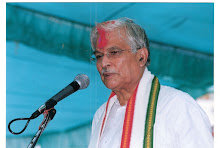The feminisation of poverty and the marginalisation of women need urgent remedial attention. The eradication of poverty was the foremost objective of the platform for Action. That remains unrealized. Instead, we see the emergence of the "new poor" ‑ a new category of poor who do not inherit poverty but fall into it because of inadequate incomes, a lack of access to social services and ecological deterioration. Gender bias is still not uncommon in programmes to remove illiteracy and malnutrition. Maternal mortality rates are unacceptably higher in the developing countries. While governments in developing countries do their best to improve health services for women and to provide medicines at affordable costs, they need greater support from their development partners in the international community.
As we stand today in the first year of the new millennium, our focus should be on the realisation of full freedom for women. From liberation to emancipation to empowerment, the story of the fight for gender equality has been one of a continuing struggle to demolish stereotypes and negative social attitudes while empowering women economically. We need to commit ourselves even more strongly not only towards the full empowerment of women but towards their "full empowerment in full freedom".
We believe that India offers in its ancient tradition a conceptual understanding for our task. The concept of complementarity between the sexes, rather than conflict, has inspired our thought through the ages, and guides our actions to the present day. This intuition of complementarity is illustrated in Indian sculpture and painting by the figure of ‘Ardhanarishvara’ ‑ half male and half female, divided vertically down the centre. Modern scientific research, which has located in the left and right sides of the brain what are commonly described as male and female characteristics, confirms a truth that our ancients divined intuitively. Science and faith both tell us that all of us carry from birth the potential to develop together and to celebrate the masculine and feminine aspects of the human personality. As no man or woman is an island, so, at the deepest level, no individual is purely male or female. Different situations bring out unsuspected qualities or failings in ourselves.
The embodiments of knowledge, prosperity and power of the one Supreme Being in India's traditions are a feminine trinity ‑ Saraswati, the presiding deity of learning, Lakshmi, the presiding deity of wealth and Durga, who personifies strength and power. It is our vision that women in the 21st century should be embodiments of knowledge, prosperity and power.
Tuesday, March 24, 2009
Women should be embodiments of knowledge, prosperity and power
Subscribe to:
Post Comments (Atom)

1 comment:
jhoshi ji namaskar ham sabhi kashi vashiyon ki shubhkamnayen aap ke sath hai aap ko chunav jitne ke liye kuchh karna hi nahi hai kyon ki shabhi jante hai ki bjp ne women ko parliament me reservation dilane ki koshis ki thi , aur bjp ke chhote karya kal ki tulna hum pichhli sarkaron se kar sakte hain vastavikta samne aajaegi ki kisne kya kiya, kya karta aur kya karega ?
Post a Comment